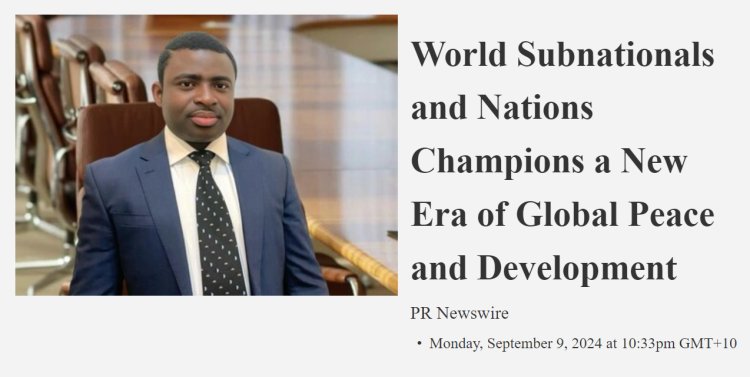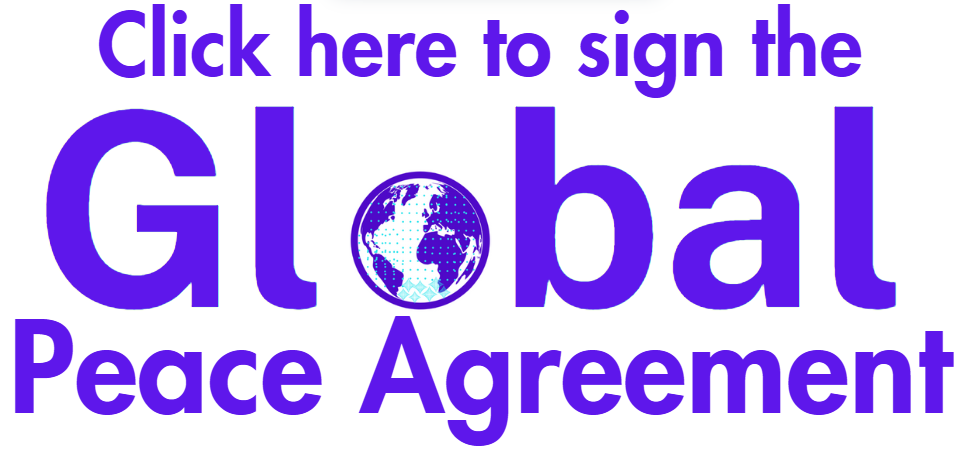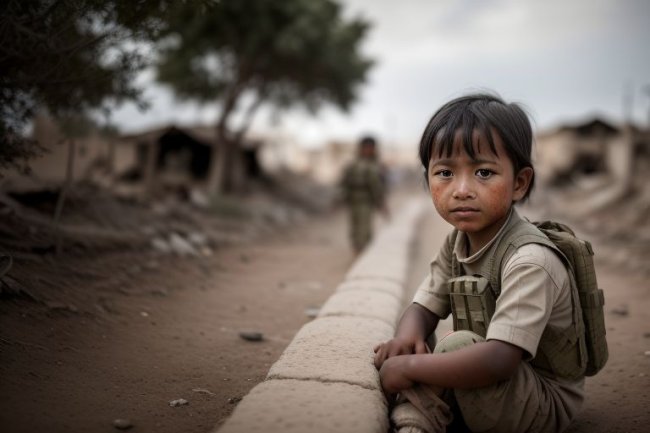World Subnationals and Nations Champions a New Era of Global Peace and Development
SPOKANE, Wash., Sept. 9, 2024 /PRNewswire/ -- The World Subnationals and Nations (WSandN) proudly unveils its ambitious mission and groundbreaking programs aimed at transforming the global landscape. With The Charter as its foundation, the mission is to advance global peace, equality of nations, human rights, and sustainable development across all subnational and national entities.

The WSANDN represents a monumental achievement in global governance, structured around a commitment to the principles of international law and human dignity. As a 'people first' movement, WSANDN prioritizes the interests of citizens over self-serving politics and governance. The organization acts as a linchpin for international collaboration, addressing global challenges through its comprehensive preventive, legal and institutional frameworks.
In a recent interview the WSANDN President General, Dr. Dominion V. Judah said, "the era of wars and terror is over, the time is now peace o'clock and the Global Peace Agreement is a preventive approach to violent conflict."
He further stated, "we are championing a new era of global peace and development, creating a better chapter for everyone, offering everyone the opportunity to become world changers and no one should underestimate the impact they can make, because your community, your nation, and the world needs you."
This powerful statement underlines WSANDN's commitment to ushering in an era of global peace and collective action.
At the heart of WSANDN's strategic vision is the carefully curated VISION2030, an initiative designed to eradicate poverty globally by 2030. This ambitious plan addresses the multifaceted causes and effects of poverty through a focus on 20 critical areas:
- Lack of Right Information and Education: Ensuring widespread access to quality education and information.
- Wars and Conflicts: Strengthening conflict prevention and resolution mechanisms.
- Lack of Adequate Income: Promoting economic stability and fair wages.
- Inadequate Infrastructure: Developing critical infrastructure to support growth.
- Ineffective Resource Management: Enhancing resource efficiency for sustainable development.
- Terrorism: Combating terrorism through coordinated global efforts.
- Subpar Healthcare Systems: Improving access to and quality of healthcare.
- Lack of Productivity: Boosting productivity through skills development and innovation.
- Marginalization: Addressing issues of exclusion and discrimination.
- Basic Needs Deficiency: Ensuring universal access to essentials like food, water, and shelter.
- Financial Insecurity: Strengthening financial systems and safety nets.
- Unequal Opportunities: Creating equal opportunities for all individuals.
- Corruption: Promoting transparency and accountability in governance.
- Lack of Diversification: Encouraging economic and social diversification.
- Job Deficiency: Enhancing job security and creating employment opportunities.
- Insecurity: Addressing safety and security concerns.
- Personal Insecurities: Mitigating psychological and social insecurities.
- Financial Crises: Managing and mitigating financial instability.
- Health Crises: Strengthening disease prevention and preparing for emergencies.
- Human-Induced Disasters: Preventing and addressing the impacts of human-induced disasters.
The Global Peace Agreement (GPA) which is now available online for signing, aims to resolve ongoing conflicts and prevent future ones. The campaign projects it will achieve 4 billion signatures globally be ratified as international law.
"The Global Peace Agreement is an outstanding framework for creating a world without violent conflicts, it will become an international law by garnering 4 billion signatures," said Darryl Marks, Spokesperson of the sign for peace campaign
World Subnationals and Nations Peace Agency (WSANDNPA) is central to WSANDN's peace efforts, focusing on mediation, arbitration, and diplomacy to prevent the escalation of conflicts. It collaborates with the World Peace Court to facilitate mutually acceptable and legally binding resolutions, firmly opposing violence and coercion. Visit signforpeace/wsandn.org or wsandn.org for the poll version.
Contact:
Austin Parker
+1 509 5050696




















